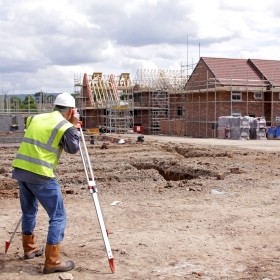
Chancellor George Osborne has defended changes to pensions in the Budget, saying people "are capable of making decisions" over their future finances.
From 2015, pensioners will have the freedom to cash in as much or as little of their pension pot as they want, removing the need to buy an annuity.
In response, firms which sell such policies saw their share prices tumble.
For the construction and housebuilding sectors, however, there was a more positive response to the Budget.
Commenting on the Budget announcement by the Chancellor of the Exchequer, George Osborne, Glenigan Economics Director Allan Wilén said: "Private housing has been an important driver behind the recovery we have seen in the residential construction market over the last year. Accordingly, it is encouraging that the housing market, and specifically increasing new housing supply, was a central theme of today's Budget.
"The Chancellor announced in advance of the Budget that the Help to Buy scheme for new housing would be extended to 2020. The move provides additional certainty to house builders to bring forward sites for development and is projected to help a further 120,000 householders to purchase a home.
"However, while keen to improve access to the housing market, the government is clearly concerned that the market may overheat as the economy recovers. Mr Osborne has called upon the Bank of England to be vigilant on house prices and, importantly, has announced further reforms to improve the supply of new homes.
"Over the last two years it has been the larger housebuilders that have had the resources to bring forward new build projects as the market has improved. Therefore it is encouraging that the government is creating a £500 million Builders Finance Fund to help SMEs that have struggled to secure bank lending. This is predicted to unlock 15,000 plots that have been stalled due to difficulty in accessing finance.
"The government is also establishing a £150 million fund to kick start the regeneration of large housing estates through repayable loans in order to boost housing supply with the creation of mixed tenure developments.
"In addition, the government is proposing to extend planning reforms, allowing the conversion of a wider range of buildings such as warehouses and light industrial premises to residential use without the need for planning approval.
"More radically, the government is proposing a new "Right to Build" scheme, giving people who want to build their own home the right to a plot from local authorities, backed up with a £150 million repayable fund to help provide 10,000 serviced plots for custom build.
"Taken together with earlier initiatives, the measures in today's Budget underline the government's desire to boost supply of much needed new homes."
Budget announcements on tax, pensions and planning that could unlock significant investment in UK real estate have been welcomed by the British Property Federation (BPF).
A big win for the BPF was the announcement of the consultation on the SDLT treatment of the seeding of property authorised investment funds (PAIFs) and the wider SDLT treatment of Tax Transparent Funds. The BPF has dealt extensively with the Treasury on this matter, highlighting how allowing such investment vehicles would be managed in the UK, rather than in a competing jurisdiction like the Channel Islands, will benefit the market, and will stimulate growth in areas of the country outside London.
Another measure likely to unlock growth throughout the UK, also called for by the BPF, was the upcoming review of the General Permitted Development Order that could see a three-tier system to decide the appropriate level of permission. This will free up local authority planning departments to concentrate on the more important parts of the planning process – such as the creation of local plans, the plans around strategic sites, infrastructure and regeneration.
The radical reform to pensions has also been welcomed, as the freedom that will be granted to those spending their pension pots holds great potential for the property industry. Investment in bricks and mortar, either directly or through funds, will boost the industry and help to encourage growth.
Liz Peace, Chief Executive of the British Property Federation, commented: “Perhaps the most fundamental reform in the Budget that could impact on UK real estate is not an obvious one and will only occur over the long-term, but the radical reforms to pensions, particularly allowing people greater say over how their pension pot is spent, could have some impact on existing property-based annuity investments, but also create new opportunities for property-based investment products.
“While we are pleased to see that the changes made to the tax and planning system are making the market amenable for investment and growth. We would also sound a note of caution, as policies such as capital gains tax for foreign property investors still run the risk of undoing the good work, and causing the UK market to lose its competitive edge.”




















